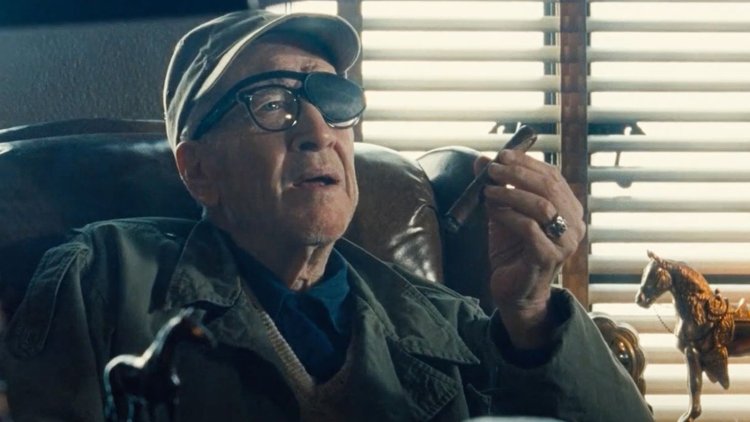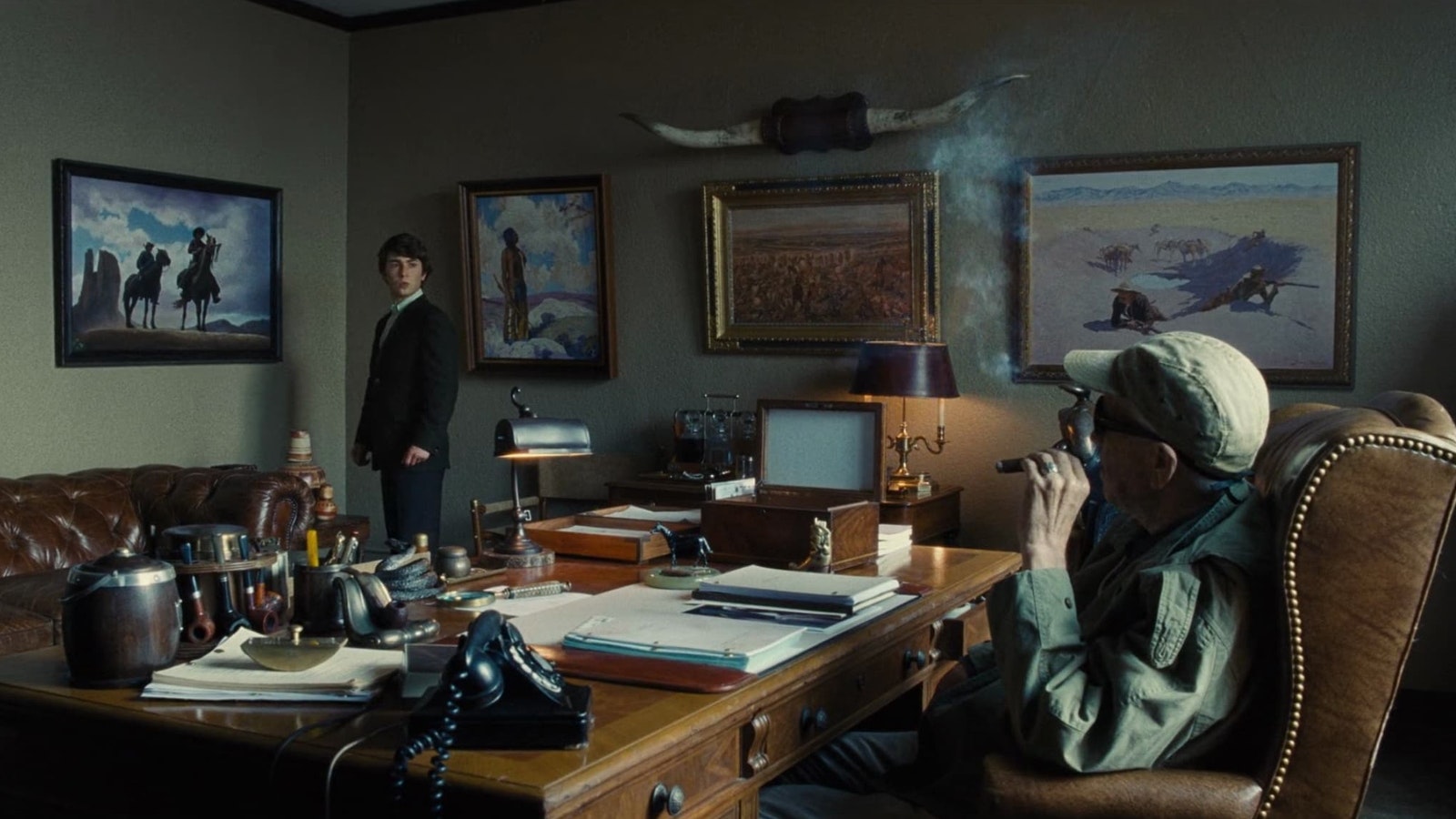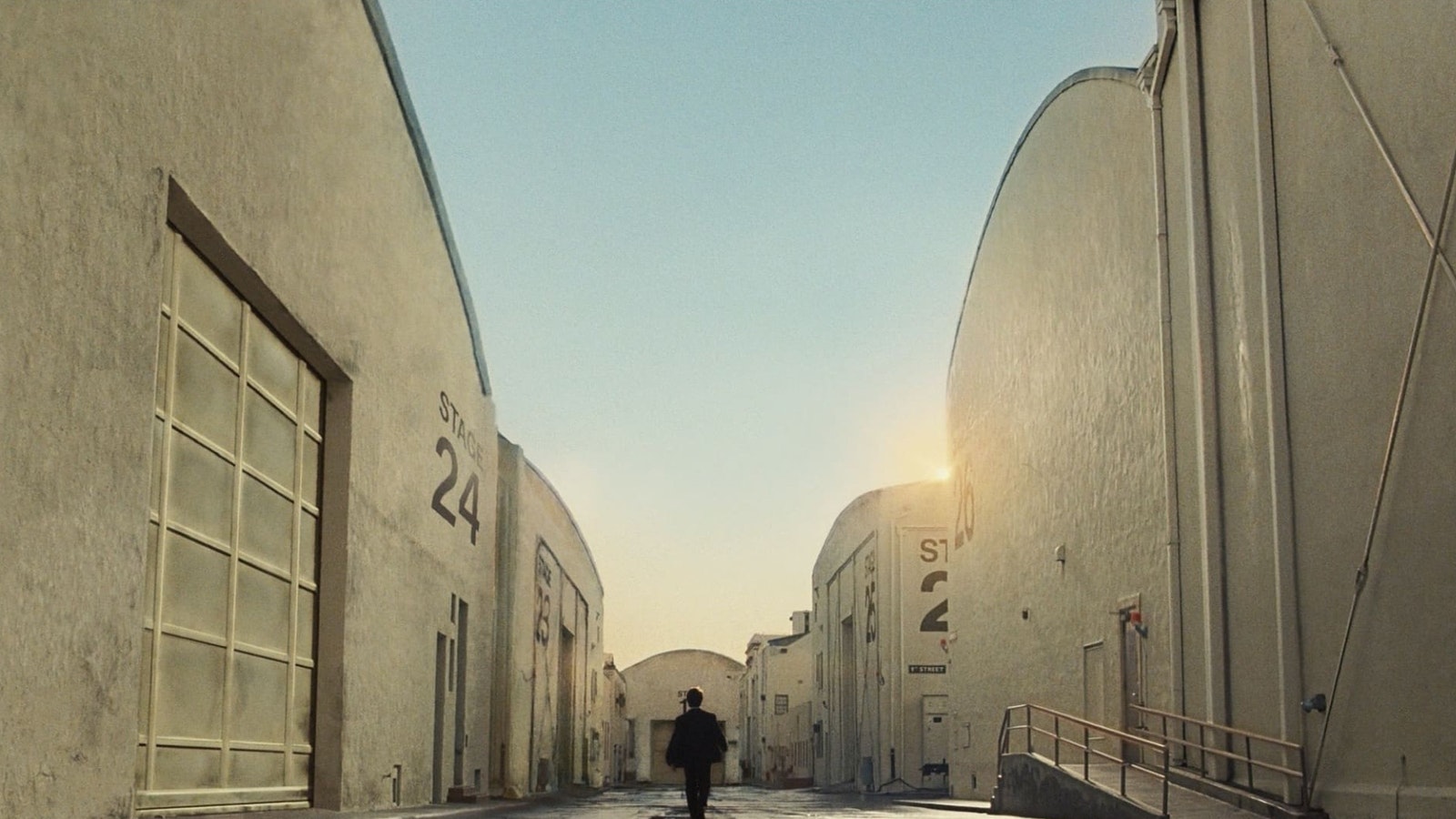David Lynch On The Fabelmans: ‘Laura Dern Encouraged Me To Do It’
It was a revelatory moment for the aspiring filmmaker. Attempting to transition...

It was a revelatory moment for the aspiring filmmaker. Attempting to transition from amateur home-movies to a professional career, the 15-year-old Steven Spielberg found himself in the office of John Ford. In just two minutes, the legendary cigar-chomping director barked some unforgettable advice at the teenager, mostly involving why a horizon in the middle of a picture is “boring as shit”, before yelling at him to “Get the fuck out of my office.” In recreating this for his autobiographical drama The Fabelmans, Spielberg asked David Lynch to play Ford — and the results did not disappoint. At home in Los Angeles over a morning coffee, Lynch told us how the hell this happened.
EMPIRE: Steven called you directly to ask you to play John Ford. How did you feel about it?
David Lynch: At first I didn’t want to do it. And the reason is, when it comes to acting, I’ve purposely tried to stay away from it, giving the likes of Harrison Ford and George Clooney a chance at their careers.
Of course. Were there other reasons that you didn’t want to do it?
Well... I don’t like to leave the house, number one. And you know... There’s a lot of people who are born to act. But I’m not one of them.
Steven then asked Laura Dern to persuade you to do it. Does Laura always hold the key? Can she generally change your mind about things?
Sure. She’s a special person in my life. She encouraged me to do it. She thought that it would be very enjoyable, and it turned out to be very enjoyable. I thought that Peter Bogdanovich would be better for it. But Steven said no. He said, “David, you’re the one to do it.” And so he talked me into it, really.

How well did you already know John Ford’s physicality and mannerisms? Or was that something you studied in earnest?
I’d seen him, with the [eye] patch, and Bogdanovich interviewed him, a famous interview, out in Monument Valley, and I saw that. Everybody kind of knew him, as a legend. I think that he was a bit of a showman. From what I’ve gathered, he didn’t really need that patch [laughs]. But it looked cool. And he had a persona with this thing. So I liked that idea. And I got the patch, and I got the hat, and I got the clothes, and I kind of lived with them for a couple of weeks, and sort of became... I became John Ford.
Were you getting into some method acting there, living in those clothes every day, getting a sense of what it might be like to be him?
[Laughs] No, I wasn’t trying to... I liked to get in the clothes and the patch and get that right, visually. That was the main thing, to feel comfortable in them. Another thing, I have to say that I really liked the scene. The writing felt good, each line, it felt real good.
I watched some of that Bogdanovich interview with Ford, and it’s uncanny. Physically, and your voice performance, it’s really close to that footage.
Well, it’s funny because... I have been nine years old, I’ve been ten years old. Now I’m in my seventies. So I kinda got to be a certain age that resembled the age of John Ford in that interview. These kinds of things happen to human beings.
"Cheetos, number one, I love them. And any chance I can, I get them."
[The Fabelmans’ co-screenwriter] Tony Kushner said that your only request was to have Cheetos in your dressing room. Is that a staple part of your diet? What specifically about Cheetos gets you through the day?
Well, Cheetos, number one, I love them. And any chance I can, I get them. But I know that they’re not exactly health food. So when I do leave the house and I get a chance to... But I don’t get them that often, honestly. If I do get them, I want a big bag. Because once you start... you need to have a lot before you could slow down and actually stop. Otherwise, with a small bag, then you’d be prowling for days to find more.
Yeah, it’s pretty addictive stuff.
It really is, it really is. It’s incredible flavour.
As far as vices go, I guess it’s not one of the worst ones.
No, not one of the worst at all.
What was it like to be directed by Steven in such a personal way, him recreating his life via you? What did that feel like?
Well, it felt great. Steven is a great guy. I liked working for him, had a real good day with him and the crew. I had a great experience. You know, I love smoking. I’ve now had to quit because I have emphysema. And so I have had to quit now for two years, or maybe a little bit more now. But that day, I smoked 16 cigars. So, smoke, for me, is real dangerous. But I just love it so much. I love nicotine. They now have movie cigars, they’re not nicotine. And when I see people smoking in films, if they’re not smokers, it makes you puke. It makes you sick. Because they just don’t do it right. And it’s so phoney. If you want you get a smoker, who knows how to smoke, in a film, that’s another story. And I know how to smoke, I’ll tell you that.
I’m sorry you can’t enjoy it anymore. But I’m glad you’ve been able to give it up if it’s not doing you any good.
With these kinds of addictions, they say you gotta bottom out. And one day I saw it happen, that if I kept it up I’d be dead. So it wasn’t hard for me to quit once that happened.
Well, if it’s a choice between the nicotine and the Cheetos, I guess Cheetos is a slightly better option.
It's a better option.
What do you make of the advice that John Ford tells the young Steven Spielberg in that scene, in terms of how to construct a more compelling shot?
John Ford probably had a bunch of things he could call on to give a short education to that young lad. But he picked the horizon bit. But it’s true. A horizon in the middle is boring as shit.

What do you think John Ford would make of the sequence?
He’d say, “That guy Lynch, I wish I could have worked with him.”
We can only dream. Alright, final question. If you were in John Ford’s position and a young aspiring filmmaker asked you for advice, what would you say? What do you tell people when they ask you?
Young, aspiring filmmakers? I always say the same thing. Get your own voice. Stay true to that voice. Get every single element of the film as close to perfection as you can. Do the best that you can. Stay true to the idea. And never turn down a good idea, but never take a bad idea. And always have final cut. Don’t ever let anyone take away your creative freedom to make the film the way it’s supposed to be made, based on the ideas. And then you can go.
Well, easier said than done in this industry, I guess, but it’s good to try to get that.
I say it’s absolutely absurd to make a film, to work for a year, two years, three years, four, more, and you don’t have the final say. Why would you do that? Why would anyone do that? You might as well just blow your brains out on the first day.
Originally published in the February 2024 issue of Empire.
What's Your Reaction?























